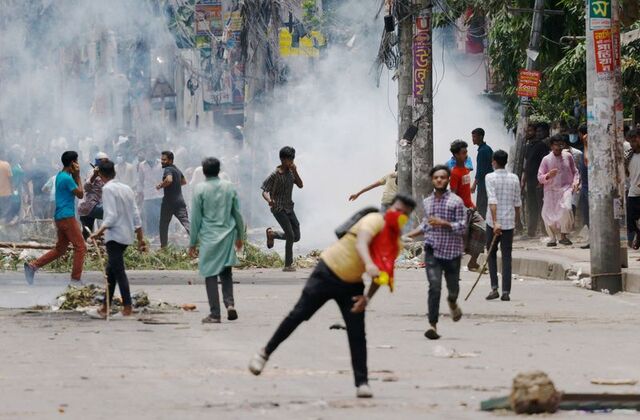An operation to restore order was launched in Bangladesh at the weekend after ousted Prime Minister Sheikh Hasina spoke on Facebook from exile in neighbouring India, sparking violent protests.
Jahangir Alam Chowdhury, head of the interior ministry in the interim government, called the operation a “Devil Hunt,” telling reporters it would “continue until we weed out the devils.”
Between Saturday evening and Sunday noon, security forces arrested 1,308 people across the country, most of whom were reportedly linked to Hasina’s Awami League party.
The operation was launched after student activists were injured during an attack on the residence of an Awami League leader on the outskirts of Dhaka. According to media reports, the joint force comprising the army, police and special forces arrested 274 people in the metropolis and other regions in the first 24 hours.
Mass protests in Bangladesh began in July. The first demonstrators were students, after which the protests spread across the country. The protesters oppose the quota system, which reserves up to 30% of government jobs for family members of veterans who fought in Bangladesh’s 1971 war of independence. The students see the quotas as discriminatory and criticise the government for not doing enough to fight unemployment. The protests gradually escalated into riots demanding the resignation of the prime minister.
On August 4, clashes broke out between demonstrators and government supporters. The parties used sticks and knives, and police fired rifles in an attempt to stop the clashes. The country also restricted mobile internet and imposed a curfew.
Bangladesh Prime Minister Sheikh Hasina resigned and left the country amid the protests on August 5.
